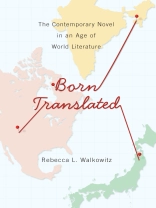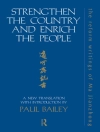As a growing number of contemporary novelists write for publication in multiple languages, the genre’s form and aims are shifting. Born-translated novels include passages that appear to be written in different tongues, narrators who speak to foreign audiences, and other visual and formal techniques that treat translation as a medium rather than as an afterthought. These strategies challenge the global dominance of English, complicate ‘native’ readership, and protect creative works against misinterpretation as they circulate. They have also given rise to a new form of writing that confounds traditional models of literary history and political community.
Born Translated builds a much-needed framework for understanding translation’s effect on fictional works, as well as digital art, avant-garde magazines, literary anthologies, and visual media. Artists and novelists discussed include J. M. Coetzee, Junot Díaz, Jonathan Safran Foer, Mohsin Hamid, Kazuo Ishiguro, Jamaica Kincaid, Ben Lerner, China Miéville, David Mitchell, Walter Mosley, Caryl Phillips, Adam Thirlwell, Amy Waldman, and Young-hae Chang Heavy Industries. The book understands that contemporary literature begins at once in many places, engaging in a new type of social embeddedness and political solidarity. It recasts literary history as a series of convergences and departures and, by elevating the status of ‘born-translated’ works, redefines common conceptions of author, reader, and nation.
Tabla de materias
Acknowledgments
Introduction: Theory of World Literature Now
1. Close Reading at a Distance
2. The Series, the List, and the Clone
3. Sampling, Collating, and Counting
4. This Is Not Your Language
5. Born Translated and Born Digital
Epilogue: Multiples
Notes
Bibliography
Index
Sobre el autor
Rebecca L. Walkowitz is professor and director of graduate studies in English and affiliate faculty in comparative literature at Rutgers University. She is the author of
Cosmopolitan Style: Modernism Beyond the Nation (Columbia, 2006), and she has edited or coedited several books, including
A New Vocabulary for Global Modernism (Columbia, 2016, with Eric Hayot). She is past president of the Modernist Studies Association.












